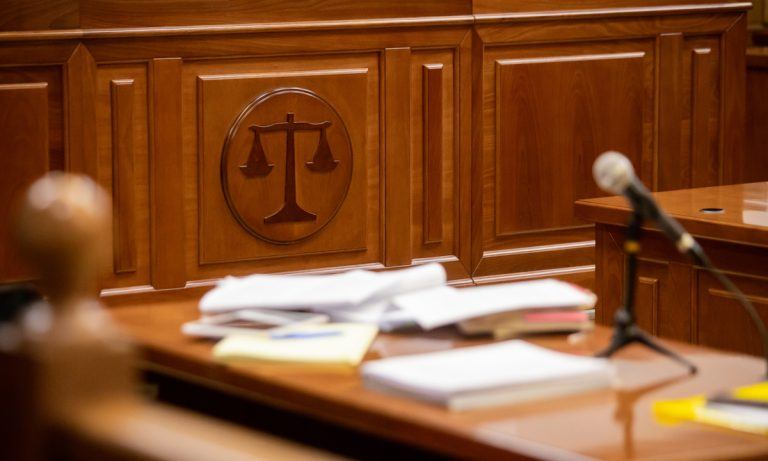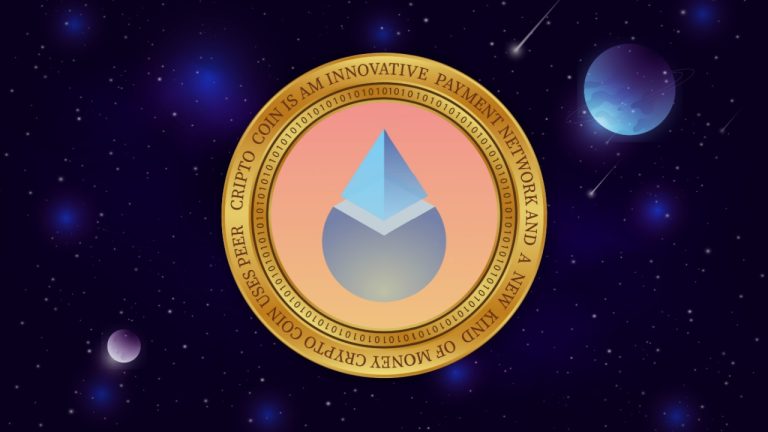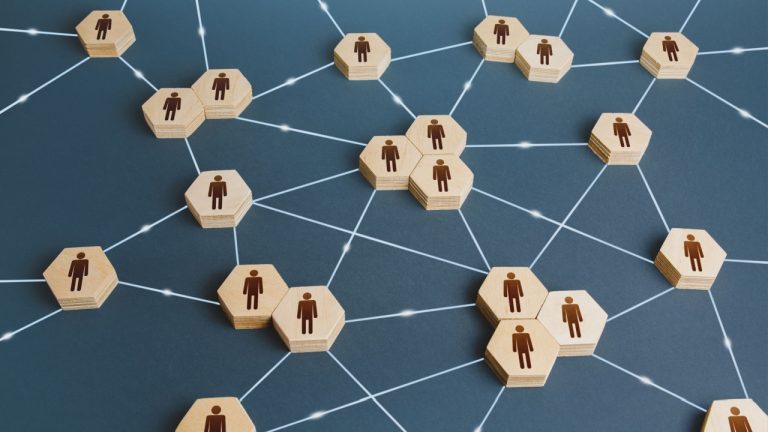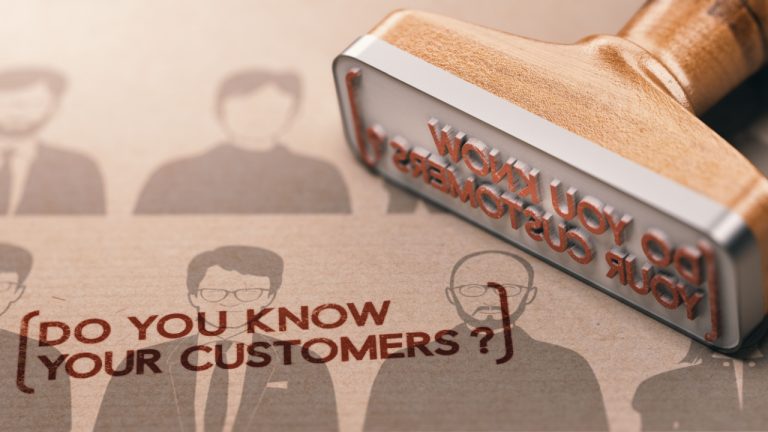 According to a recent decision from the US District Court for the Northern District of California, decentralized autonomous organizations, or DAOs, may not provide the liability protection the industry once thought. In a seminal case, a Federal Court in California ruled that, despite the governing body being a DAO, several prominent investment firms may in […]
According to a recent decision from the US District Court for the Northern District of California, decentralized autonomous organizations, or DAOs, may not provide the liability protection the industry once thought. In a seminal case, a Federal Court in California ruled that, despite the governing body being a DAO, several prominent investment firms may in […] In October 2024, the latest data shows that decentralized autonomous organizations (DAOs) hold $24.5 billion in treasuries, down by $12.6 billion since the end of March. Optimism’s DAO, which boasted $8.3 billion on Mar. 24, has seen its treasury shrink to $3.8 billion, making it the largest DAO treasury despite the decline. Decentralized Autonomous Organizations […]
In October 2024, the latest data shows that decentralized autonomous organizations (DAOs) hold $24.5 billion in treasuries, down by $12.6 billion since the end of March. Optimism’s DAO, which boasted $8.3 billion on Mar. 24, has seen its treasury shrink to $3.8 billion, making it the largest DAO treasury despite the decline. Decentralized Autonomous Organizations […]

The Hong Kong Legislative Council is actively seeking feedback on several critical aspects of Web3 policy development, including balancing technical, legal, and regulatory frameworks.
Hong Kong Legislative Council member Johnny NG Kit-Chong has said that opinions are now being sought from the global industry to propose policy recommendations and thematic discussions on the future direction of Web3 and virtual assets industry development.
According to a post on the X social platform, the Legislative Council established a subcommittee on Web3 and virtual asset development to promote the development of Web3 and virtual assets in Hong Kong.
The proposal will be studied in detail, summarized, and submitted to the government through the Legislative Council platform. This initiative aims to shape Hong Kong’s policy and regulatory landscape, positioning it as a global hub for Web3 innovation.
 After the introduction of ordinals, BRC-20 tokens, and more recently, Runes, the next significant wave of innovation on Bitcoin will revolve around Decentralized Autonomous Organizations (DAOs). Aisling Connolly, the Senior Research Scientist at the Dfinity Foundation, has asserted this. He stated that the technology, which is now well-suited to support DAOs and the more mature […]
After the introduction of ordinals, BRC-20 tokens, and more recently, Runes, the next significant wave of innovation on Bitcoin will revolve around Decentralized Autonomous Organizations (DAOs). Aisling Connolly, the Senior Research Scientist at the Dfinity Foundation, has asserted this. He stated that the technology, which is now well-suited to support DAOs and the more mature […] A bug in the smart contract of Lido’s discontinued Solana staking service is reportedly preventing users from withdrawing digital assets valued at more than $24 million. Lido attributes this issue to “a problem with the maintainer bot and the recent update of rent-exempt terms for Solana staking accounts.” Discontinued Solana Staking Service A suspected bug […]
A bug in the smart contract of Lido’s discontinued Solana staking service is reportedly preventing users from withdrawing digital assets valued at more than $24 million. Lido attributes this issue to “a problem with the maintainer bot and the recent update of rent-exempt terms for Solana staking accounts.” Discontinued Solana Staking Service A suspected bug […] The Wyoming governor, Mark Gordon, recently signed into law a bill that establishes a legal framework for regulating decentralized autonomous organizations under existing financial laws. The enactment of this law is also viewed as an effort to attract blockchain firms to Wyoming. New Law Reinforces Wyoming Crypto-Friendly Reputation Mark Gordon, the Republican governor of Wyoming, […]
The Wyoming governor, Mark Gordon, recently signed into law a bill that establishes a legal framework for regulating decentralized autonomous organizations under existing financial laws. The enactment of this law is also viewed as an effort to attract blockchain firms to Wyoming. New Law Reinforces Wyoming Crypto-Friendly Reputation Mark Gordon, the Republican governor of Wyoming, […] Diana Tlupova, Head of Compliance at Nexera ID, has argued players in the decentralized finance (defi) space can stay ahead of regulators who might want to impose stringent Know-Your-Customer (KYC) rules by using zero-knowledge (zk) proofs to authenticate user credentials. Tlupova contends that, in addition to allowing users to maintain control over their KYC data, […]
Diana Tlupova, Head of Compliance at Nexera ID, has argued players in the decentralized finance (defi) space can stay ahead of regulators who might want to impose stringent Know-Your-Customer (KYC) rules by using zero-knowledge (zk) proofs to authenticate user credentials. Tlupova contends that, in addition to allowing users to maintain control over their KYC data, […]
DAOs should learn from Burning Man’s example in simplifying their missions and governance structures and keeping community members engaged.
As they exist today, decentralized autonomous organizations (DAOs) will not scale to the masses.
Sure, shining examples like PleasrDAO, Uniswap DAO, Synthetix’s group of DAOs, and Maker DAO exist, thriving in their respective niches. Still, none of these have gotten anywhere close to being household names.
Why, you might ask?
Related: Cybernetic organizations — BORGs — are doomed to fail
They’re too crypto.
Three of these four are protocol DAOs, driving the day-to-day operations and future growth of DeFi ecosystems. The other, PleasrDAO, is a collective of well-known crypto builders, investors, and overall thought leaders curating the future of art, on-chain.
Though these DAOs are supposed to be “crypto-focused,” we still need a model for DAOs that will transcend the industry.

Consider Burning Man: A DAO before DAOs were coined. A DAO truly outside of crypto.
From its founding in 1986 with just 20 guests, to its rise to a global phenomenon with an estimated 73,000 in attendance this year, the draw has always been simple, yet powerful enough to bring people together from all sorts of backgrounds.
Burning Man can be almost anything to anyone, but to everyone, it’s an escape from traditional society to an alternative in which money doesn’t rule and paying it forward does. Every year, the city gets bigger, and the camps around it offer more, despite the fact that money isn’t used during the event itself.
With the crypto bear market continuing and DAOs still stopping short of crossing the chasm, perhaps it’s high time to draw inspiration from the physical world’s most famous DAO.
What if DAOs don’t always need to be fully decentralized?
Burning Man thrives on a model in which the non-profit plans the city and everything involved with making sure the festival and its camps can still thrive there. Simultaneously, the camps are allowed to offer services they choose to offer, as long as those services align with the greater mission, vision, and values of the event.
If that rings a bell to DAO practitioners, it’s because certain DAOs already operate with a similar structure. Take Ukraine DAO and VitaDAO, both of which Vitalik himself discusses in his seminal essay on DAOs vs. corporations.
Ukraine DAO functions with an overarching council making major decisions such as creating working groups or “pods,” funding them, and choosing what organizations or initiatives receive donations from the DAO. The working groups below the council are largely free to operate on their own, much like Burning Man’s camps, as long as they do not do so in a way that goes against the DAO’s mission, vision, and values.
VitaDAO has, as of this year, consolidated into three working groups, namely: longevity dealflow, community and awareness, and coordination. Each group has a steward that shepherds its activities and all ensure that all of their activities are always aligned with the common goal of pushing longevity research to new heights.
Both DAOs continue to operate and scale their activities in their own ways, working far beyond the typical model of “DAO as an investment fund of some sort.” If more DAOs were to draw inspiration from both their examples and that of Burning Man’s interplay between the foundation and the camps, we just might see the DAO model move far beyond crypto and more towards a shining example of what the future of all communities can be.
Burning Man, in and of itself, can be conceptualized as a sort of “mini-network state.”
Balaji Srinivasan, who pioneered the idea, defines a network state as “a highly aligned online community with a capacity for collective action that crowdfunds territory around the world and eventually gains diplomatic recognition from pre-existing states.”
Though the Burning Man movement is largely rooted in the physical world, it thrives because of the idea that it’s the escape from traditional society and overall, the pressures of everyday life, for everyone.
Related: OpenAI needs a DAO to manage ChatGPT
It’s here in the power of the idea that its potential status as a network state exists. If DAOs ever hope to become ubiquitous, they should learn from Burning Man’s success here.
Why not put all or nearly all crypto on the back-end and in so doing, make it easier than ever to understand the power of DAOs? We’ve promised it time and time again, and yet, Ukraine DAO and VitaDAO are the most well-known examples of attracting people from far beyond the crypto-sphere to DAOs.
Let’s start with better manifestos.
When DAOs launch, they should launch for an audience, above all else, that can push their goals forward to a scalable reality and less for a tiny fraction of the world that “gets” tokenomics and related fields.
Let’s consider as well, making the physical world a part of their activities, far beyond involvement in conferences and other industry events. Why not have festivals that everyone can get behind, backed by DAOs?
It’s a start.
Crossing the chasm means educating the masses on the impact we can make beyond our industry bubble. We’re not there yet but with a sprinkling of magic from initiatives like Burning Man, we can be.
Crypto and DAOs by extension desperately need better roads to the rest of the world. Why not hyper-scale physical events to help us get there? Burning Man shows us that a simple vision can evolve into a global movement that persists and grows for generations, when done right.
Let’s make the first truly crypto, Burning Man, as one.
This article is for general information purposes and is not intended to be and should not be taken as legal or investment advice. The views, thoughts and opinions expressed here are the author’s alone and do not necessarily reflect or represent the views and opinions of Cointelegraph.

Cybernetic organizations automate decision-making so that DAO actions can be taken without proposals — implementing law through code.
What makes a decentralized autonomous organization (DAO) a DAO? In practice, the democratic structure of these organizations has been compromised because a number of self-purporting DAOs are operating like traditional corporations.
With this in mind, developers at Delphi Labs proposed an alternative framework, incorporating so-called BORGs (Cybernetic Organizations) into governance structures to automate decision-making so that action could be taken without a DAO proposal. In effect, a BORG would be an artificially intelligent bureaucrat, implementing law through code.
However, the project of democratization should not be abandoned yet. DAOs should put in the work to engage their community in governance from the start.
As BORG proponents admit, “BORGs are not intended to be fully transparent, fully decentralized or fully autonomous.”
So, how can these entities coexist with DAOs? By design, BORGs further cement the vision of founding core teams who establish these entities, then shield their interests from criticism under the guise of trust-minimized, programmable governance. Where this technology is adopted, projects are bound to siphon decision-making into BORGs for the sake of convenience, falling into a democratic deficit.
Related: OpenAI needs a DAO to manage ChatGPT
It is worth noting that Delphi Labs argues in favor of BORGs under the premise that DAOs cannot function as they were envisioned. DAOs require significant levels of coordination and engagement. Not to mention DAOs are now facing an uphill legal battle, with a recent court case in the United States ruling that legal liability could be extended to tokenholders.
In the absence of functioning DAOs, BORGs represent a more democratic entity than a traditional hierarchical corporate structure. But if decentralized governance can be achieved, automated decision-making pales in comparison to the outcomes that can be delivered from inclusive governance.
To appreciate DAOs, we have to understand the problem that this decentralized structure was designed to fix. In the last century, corporations have become increasingly centralized, with almost all decisions made to put more money in the pockets of the largest shareholders. This has come at a tremendous cost to employees and consumers in the form of low wages, poor service quality and price inflation.
This is one of the most interesting papers I’ve read on DAOs.
— drnick (@DrNickA) April 20, 2023
It proposes BORGs, essentially hiving off DAO adjacent entities which have a legal personality tailored to their specific action.
I resonate with a lot of the definitions here, importantly it let’s the DAO be a DAO https://t.co/lZrbTMtxMm pic.twitter.com/WgDGi6wLWB
When the crypto industry developed out of the ashes of the 2008 recession, leaders in the space advocated for crypto companies to operate with decentralized governance to avoid the foils of corporate greed that caused Wall Street’s collapse.
Over the course of history, democracy is the only system that has proven to optimize the diverse interests of a community so that no person benefits to the detriment of everyone else. As the industry seeks to democratize finance, extending opportunities to previously disenfranchised communities, it is critical that these services are developed democratically. Otherwise, the end product is bound to serve the interests of the founders and the largest stakeholders.
Related: Brian Armstrong promised me $100 in Bitcoin — So, where is it?
Members of the DAO community should have a say in critical decision-making, especially as DAOs diversify their membership and need to balance the preferences of people from different socioeconomic backgrounds. By design, community-driven solutions will cater to a wider range of preferences than decisions made behind closed doors by smaller groups, or executed automatically by BORGs developed by these individuals.
One of the benefits of BORGs as outlined by Delphi Labs would be to reduce the legal liability of DAO members in relation to off-chain activities, such as investing in new projects or hiring workers, which would then be delegated to a BORG. However, it is difficult to say whether this delegation would be recognized under law in all jurisdictions. Moreover, the existence of BORGs does not eliminate liability for on-chain activities, so DAO communities still need to be prepared for these events in the future.
This is an ongoing issue for DAOs — one that can be addressed with greater transparency and accountability while complying with existing laws and guidelines. As of yet, the benefits of BORGs do not outweigh the risk this framework poses to the democratic structure of DAOs.
Scalability remains a key attraction to BORGs, with the potential to streamline decision-making as projects expand and diversify. However, the benefits of automation result in sacrificing democratic ideals.
Engaging community members in the decision-making process should be the first port of call before a DAO turns to automation. This requires developers to reflect on whether the product is people-centered, tailoring the mission to one that would attract community interest and engagement. Furthermore, coordinating with a larger group of stakeholders requires coordination and flexibility.
While operating a non-hierarchical organization can be difficult, these sacrifices will have long-term benefits to the sustainability and impact of the project. Otherwise, community members may be alienated from the project and abandon it altogether. With the potential to undermine democracy and erode community support, BORGs are doomed to fail.
Though DAOs come with their own set of problems that must be addressed, the solution must not be to reduce transparency and community participation but to create tools that allow for the efficient management of a DAO.
This article is for general information purposes and is not intended to be and should not be taken as legal or investment advice. The views, thoughts and opinions expressed here are the author’s alone and do not necessarily reflect or represent the views and opinions of Cointelegraph.

The system uses “time-lock puzzles” to encrypt the contents of votes, making them unreadable until balloting has finished.
Venture capital fund Andreessen Horowitz, also known as A16z, has released a Solidity library that can be used for anonymous voting on Ethereum. Called “Cicada,” the library prevents an individual voter’s choice from being known before polling ends. When combined with zero-knowledge group membership systems like Semaphore, it can also make the identity of the voter permanently unknowable, according to a May 24 blog post from A16z engineer Michael Zhu.
Excited to announce Cicada: a new building block for private on-chain voting. https://t.co/hxE4KL4Se6
— moodle zoup (@moodlezoup) May 24, 2023
Cicada relies on time-lock puzzles, a type of cryptography that allows users to encrypt secret values that can only be decrypted after a specific period of time has passed, Zhu stated.
These puzzles have been around since 1996. But before 2019, they would have required users to reveal their secret values once the time period had passed. In voting systems, this could have caused problems with users submitting votes and then going offline, preventing all the votes from being countable.
In 2019, the concept of “homomorphic” time-lock puzzles was proposed by cryptographers Giulio Malavolta and Aravind Thyagarajan. This allowed the puzzles to be added together to produce a final puzzle that was much easier to solve than the sum of the individual puzzles. The solution to the final puzzle reveals only the sum of the individual values without revealing the individual values making up this sum.
According to the A16z post, Cicada uses these homomorphic puzzles, allowing votes to be counted even if users go offline.
When attempting to transfer Malavolta and Thyagarajan’s system to the blockchain, A16z researchers ran into an obstacle to creating a fair voting system: Each choice needed to be encoded as a boolean value of “1” or “0.” This meant that attackers could try to increase their voting power by incorrectly encoding the vote — by encoding “100” as their value, for example.
To solve this problem, Cicada requires voters to submit a zero-knowledge proof of ballot validity along with each ballot, the post said. The proof shows that the vote was encoded correctly, but without revealing the contents of the vote.
Related: Anchorage Digital opens up DeFi voting for custody clients
Cicada only prevents votes from being known while the poll is being conducted. Once the “poll has closed” or the time-lock period has passed, any person can determine the contents of a vote by brute-forcing the solution to the puzzle. However, A16z suggested that this problem can be solved by combining Cicada with zero-knowledge group membership systems like Semaphore, Semacaulk or zero-knowledge state proofs. In this case, brute forcing the puzzle will only reveal that the vote was cast by an eligible voter but will not reveal the credentials used to prove the voter’s eligibility.
As an example, Zhu provided a link to a sample contract produced using Cicada that also relies on Semaphore to prove voter eligibility.
Voting systems have long been a component of decentralized autonomous organizations (DAOs), the governing bodies that often manage blockchain apps. But in most cases, DAOs use tokens to represent votes, which means that individual users can have an outsized influence if they hold a large number of tokens. For example, on May 22, an attacker took control of Tornado Cash by casting extra votes on a malicious proposal, using it to drain all of the governance contract’s funds. The attacker later offered to give back control to users.
Waves founder Sasha Ivanov has argued that DAOs must move to a more democratic voting system if governance attacks like these are to be avoided.